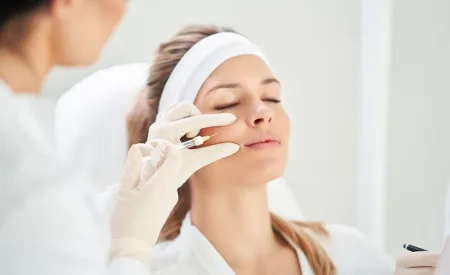Estrogen, a pivotal hormone in the female reproductive system, plays a multifaceted role in women’s health, influencing various physiological processes throughout their lives.
From puberty to Menopause, Estrogen orchestrates menstrual cycles, bone health, and cognitive function, among other vital parts.
The advent of Estrogen pills has enabled medical interventions to address hormonal imbalances and alleviate symptoms associated with Menopause and other conditions.
These pills promise relief but also raise questions about potential benefits and risks.
As we delve into the diverse aspects of Estrogen’s impact on women’s health, it becomes crucial to scrutinize the advantages these pills offer while acknowledging the potential hazards they might entail.
Striking the right balance between harnessing the benefits and mitigating the risks of Estrogen pills is essential for promoting women’s overall well-being.
Benefits of Estrogen pills
There are several factors that justify Estrogen pills for women as beneficial.
Some of them are,
Relive symptoms of Menopause
Your body’s natural production of Estrogen changes over time.
During the onset of puberty, Estrogen production increases.
If you are an individual with ovaries, you will continue to experience elevated Estrogen levels from puberty until Menopause.
However, as Menopause approaches, Estrogen levels gradually decrease.
The decline in Estrogen levels during this time can lead to the onset of menopausal symptoms.
These commonly experienced symptoms include:
- Hot flashes
- Vaginal dryness
- Chills
- Difficulty sleeping
- Excessive sweating
To address menopausal symptoms, many healthcare professionals may recommend using Estrogen-containing medications.
Administering hormone therapy to replace the diminishing Estrogen levels can often alleviate these menopausal symptoms.
Improves vaginal health
Estrogen plays a crucial role in maintaining vaginal health.
When levels of Estrogen decrease, it can lead to alterations in the vaginal tissue, lining, and pH balance.
These changes can result in various vaginal health conditions, such as:
- Vaginal dryness
- Vulvar atrophy, a condition characterized by dryness, soreness, and urinary incontinence
- Atrophic vaginitis is an inflammation of vaginal tissues often triggered by dryness and irritation
Estrogen therapy may offer effective treatment options for these conditions.\
Improves the condition of the ovary
Your ovaries primarily govern the production of Estrogen in your body.
When ovaries fail to generate this hormone due to dysfunction or other medical conditions, hormone therapy might become necessary.
Conditions that may necessitate supplemental Estrogen therapy include:
- Female hypogonadism is characterized by reduced ovarian function
- Ovarian failure, wherein both ovaries cease to function
- Oophorectomy is the surgical removal of both ovaries
If you have undergone the removal of your ovaries, hormone therapy may be employed to alleviate symptoms associated with premature Menopause.
In certain instances, the uterus and ovaries are removed, a procedure known as a total hysterectomy.
Improves bone health
Estrogen pills for women have been known to reduce bone loss following menopause potentially.
Nevertheless, newer medications have proven more effective in halting and even reversing bone loss, and as a result, they are the preferred choice for most healthcare providers today.
However, it’s worth noting that these medications do not always yield the desired results, and in some cases, their side effects can be quite severe.
In such instances, a doctor might suggest utilizing estrogen as a treatment option for osteoporosis, a condition characterized by bone loss.
For further information on osteoporosis treatments, exploring additional resources is recommended.
The risk of Estrogen
As we know, there can be a risk factor for anything that offers us benefits.
Hormone therapy carries certain risks, and its usage has become less widespread than in the past due to emerging research findings that highlight potential long-term risks, such as cancer and heart-related issues.
Nonetheless, these studies have contributed to a better understanding among doctors and medical researchers.
It concerns which individuals are most likely to benefit from Estrogen therapy and who should explore alternative treatments.
The risk factors and side effects related to Estrogen therapy encompass:
Blood clots
Estrogen elevates the risk of blood clots, leading to stroke, heart attack, and even fatalities.
Cancer
Estrogen may heighten the risk of specific cancers, particularly Breast Cancer.
It’s essential to discuss your personal health history, family medical history, and susceptibility to breast cancer with your physician.
Birth irregularities
If you are using Estrogen or hormone therapy and become pregnant, there is a likelihood that your pregnancy might terminate prematurely.
Additionally, babies born to individuals using Estrogen therapy may commonly exhibit birth irregularities if the pregnancy is carried to full term.
Dense breast tissue
Estrogen therapy can result in the development of dense breast tissue.
This denseness can pose challenges when interpreting mammograms, potentially making the early detection of breast cancer more challenging.
Doctors typically prescribe Estrogen-only medications for individuals who have undergone a hysterectomy but still retain their ovaries.
Conversely, a combination of Estrogen-Progesterone medication is typically recommended if a hysterectomy has not been performed.
This combination therapy is favored because Estrogen-only treatments can heighten the risk of endometrial cancer.
The endometrium is the lining of the uterus, and removing the uterus during a hysterectomy eliminates the risk of endometrial cancer.
Conclusion
The importance of estrogen in maintaining women’s health cannot be overstated.
Women going through menopause or other Estrogen-related disorders can greatly benefit from Estrogen therapy, which comes from Estrogen pills.
To carefully balance the advantages and potential risks and make decisions in collaboration with a healthcare professional.
Ultimately, each woman’s unique needs and hazards should be considered while deciding whether to utilize Estrogen pills.



